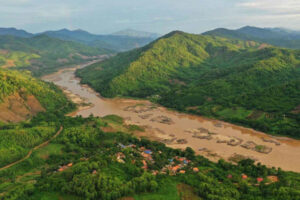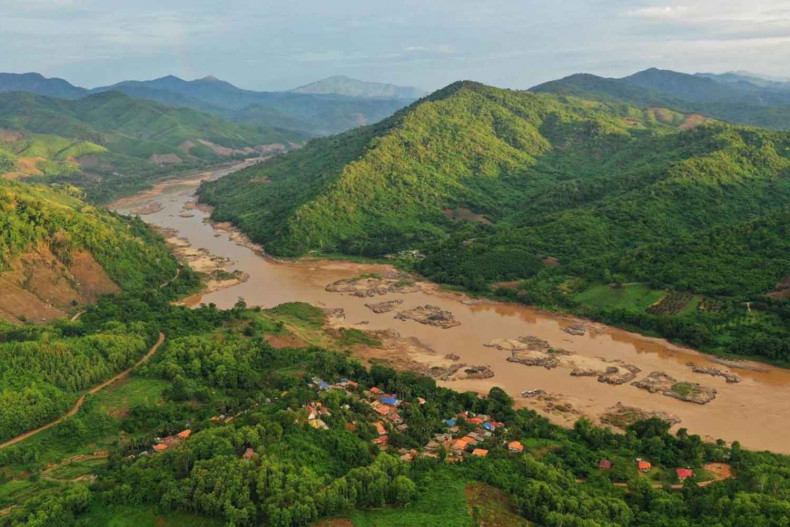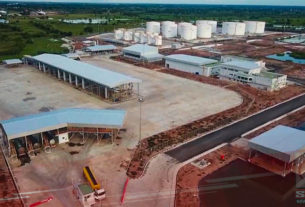
New hydropower dam in Laos could lead to ‘economic losses’
Conservationists and people of the Mekong Basin are petitioning the government not to sign a contract to buy electricity from the Pak Beng Hydropower Dam in Laos, fearing economic and territorial losses.
The signatures were contained in an open letter addressed to Prime Minister Srettha Thavisin and Energy Minister Pirapan Salirathavibhaga.
The letter was co-signed by Thongsuk Inthawong, former headman of Bann Huai Luek in Wiang Kaen district of Chiang Rai; Niwat Roikaew, conservationist and the head of a local conservation group, Rak Chiang Khong; and the Network of Thai Mekong People, a civil group active in eight provinces along the basin.
The letter was submitted to the government during the prime minister’s tour of Chiang Rai yesterday.
Mr Srettha was scheduled to visit Chiang Saen district on the Mekong River bank and attend a briefing on irrigation to improve water availability.
The letter refers to a meeting of the Mekong River Commission, which acknowledged the progress in the Pak Beng hydropower dam project to be built on the Mekong River in Oudomxai province of Laos, about 70km from the Thai–Laos border in Wieng Kaen district of Chiang Rai.
The dam, able to produce 920 megawatts of electricity, hopes to sell 95% of its supply to the Electricity Generating Authority of Thailand (Egat).
Cross-border impacts of the proposed dam are being studied, the result of which will be presented to the Egat before finances are secured, the letter said.
Four forums have been held to spread information about the Pak Beng project to locals who voiced concerns about the threats posed by the dam.
Their main concerns had to do with water backing up from the dam, which could inundate homes and farmland in the riverside communities in Wiang Kaen, Chiang Khong and Chiang Saen districts.
The letter added the dam could hinder the migration of fish in the Mekong River and harm the local fishery industry. Also, the manipulation of water levels by the dam could endanger the farming and cultivation of freshwater seaweed, a prized cash crop for farmers in the three districts, it said.
More importantly, the letter said, water released by the dam could overflow some islets on Thai territory in the river. This could amount to a territorial loss, it said.
The letter also highlighted a lack of urgency and flaws in the dam project.
It said an environmental study cited as favouring the project was based on old information and had led to substandard assessment of the dam’s impacts.
Residents were also not informed about the water overflow, which stands to affect them, it said.
They were never told how far the water would rise and what damage they would face in terms of their way of life and farming jobs, the letter said.
It said the planned purchase of electricity was unnecessary as the country has more than enough power in reserve.
“[We can’t] call the project a clean energy [project] because it is bound to come at the expense of livelihoods, economic well-being and the culture of people living along the Mekong River.”
Source: https://www.bangkokpost.com/thailand/general/2829257/new-hydropower-dam-in-laos-could-lead-to-economic-losses



